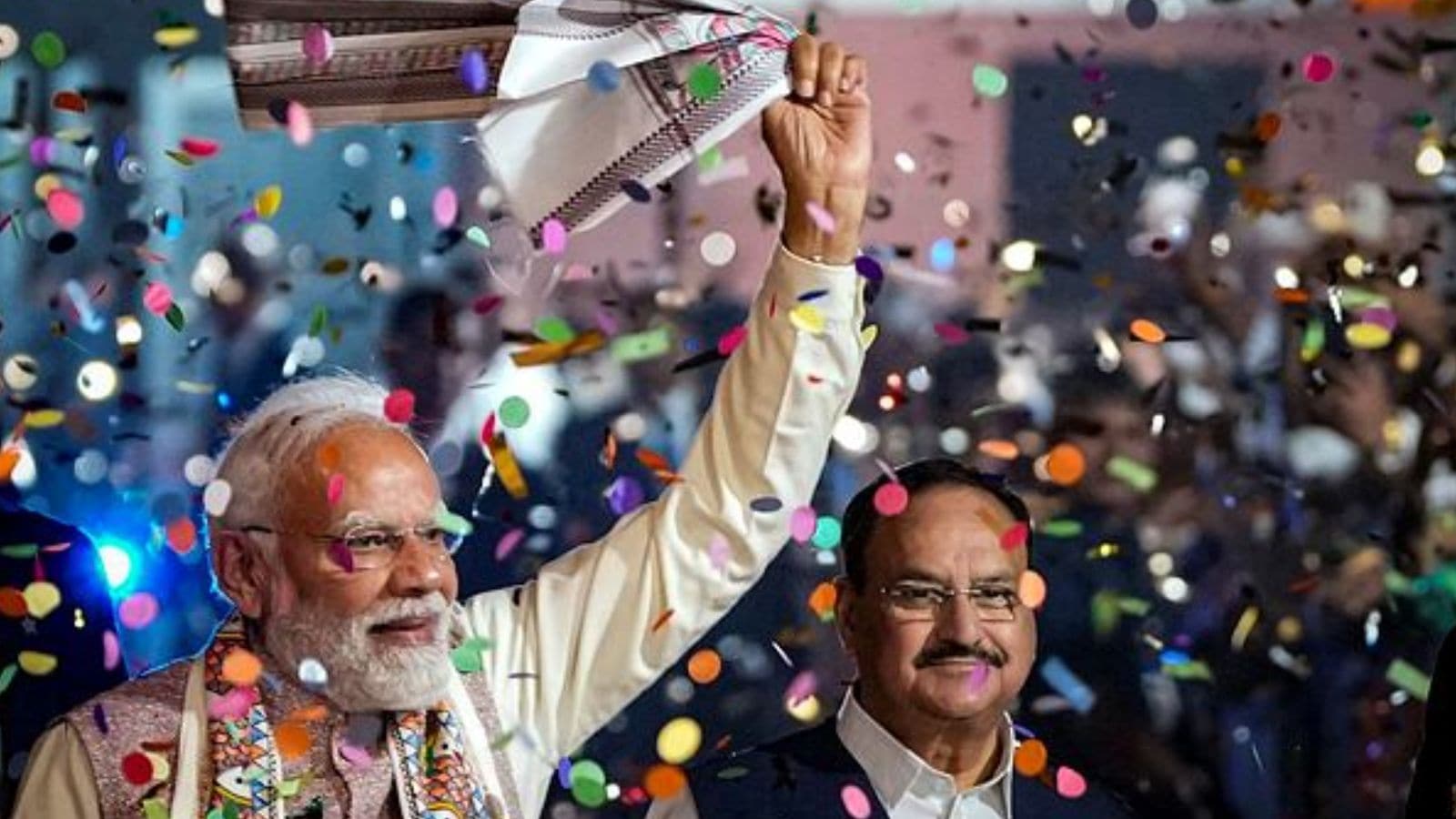Two posters tell the story of Bihar’s 2025 elections for Chief Minister Nitish Kumar and his party, the Janata Dal (United). The first — “25 se 30, phir se Nitish (From 2025 to 2030, it is Nitish’s government again)” — appeared in May, long before the campaign gathered steam. The second — “Tiger Abhi Zinda Hai (Tiger is still alive)” — was erected a day before the results were declared.
Also read | Women’s vote, governance record and alliance cohesion drive NDA victory
The first one was an assertion as well as a reflection of the JD(U)’s anxiety. There were reports of Mr. Kumar’s declining mental acuity. There was also speculation that he will be replaced, with the BJP promoting its nominee instead. The poster with Mr. Kumar, in a blue Nehru jacket, placed against a yellow background with the slogan inscribed in black, was to underline Mr. Kumar as the undisputed Chief Minister. However, Mr. Kumar’s administration needed a little more than just rhetoric.

It was around this time that the seeds for the Mukhyamantri Mahila Rozgar Yojana were sown. In his first term, Mr. Kumar began a network of women self-help groups under the World Bank-aided Bihar Rural Livelihoods Project (BRLP), locally known as Jeevika. This network has seen Mr. Kumar through various ups and downs.
His administration decided to tap into this network once again. A one-time ₹10,000 financial aid was extended to 1.21 crore beneficiaries associated with Jeevika. It cost ₹12,100 crore, which is roughly 4% of Bihar’s annual budget.
Careful consolidation of women voters
The administration looked at various schemes extending financial aid to women, including Maharashtra’s Ladki Bahin Yojana, a monthly payout scheme which is straining the State’s finances. It was a deliberate decision, according to top JD(U) leaders, to opt for extending an one-time financial assistance instead of monthly payouts.

The scheme was rolled out on September 26 by Prime Minister Narendra Modi, and the election schedule was announced by the Election Commission of India (EC) on October 6.
The gamble paid off. The scheme consolidated women voters across caste lines, delivering anticipated dividends for the JD(U) and the NDA. The JD(U) was the only party to report a significant rise in vote share — from 15.39% in 2020 to 19.03%. The BJP’s share rose only marginally, from 19.46% to 20.42%. This marks Mr. Kumar’s second-best performance after 2010, when the JD(U) won 115 of 141 seats contested. As per the provisional voter turnout data released by the EC, 2.51 crore women voted in this election.
The table below shows the number of seats/districts with various shares of women voters in the 2025 Bihar Assembly Elections.
(Scroll right to see the full table)
Women-centric schemes
“It would be simplistic to credit the Mukhyamantri Mahila Rozgar Yojana alone for the JD(U)’s performance. People voted for Nitish Kumar’s experience, clean image, good governance, law and order, and progress,” said JD(U) national spokesperson K.C. Tyagi. Mr. Tyagi pointed out various women-centric schemes of the Nitish Kumar government. “Kumar has had a generational connection with women. In 2006, he first gave reservation to women representatives in panchayat and municipal bodies; in 2007, he gave 35% reservation to women in the Bihar Police. His government pays for stationary and uniforms for girl children. The decision to impose prohibition also came directly from the women,” he added.
On October 12, six days after the election schedule was announced, the NDA finalised its seat-sharing formula. For the first time since Mr. Kumar aligned with the BJP in the mid-1990s, both parties contested an equal number of seats — 101 each.
From then on, the narrative shifted. Reports emerged of Mr. Kumar reprimanding close aides for undermining party interests, some of which played out publicly at rallies. He also pressured the BJP to make the Lok Janshakti Party (Ram Vilas) return four to five seats allocated to it but claimed by the JD(U) — signalling that Mr. Kumar was still firmly in control.
A day before the results, the JD(U)’s Patna office unveiled the poster reading “Tiger Abhi Zinda Hai.” Sponsored by a party leader, it carried the clutter typical of election posters — still its assertion was vindicated.

 1 hour ago
4
1 hour ago
4







 English (US) ·
English (US) ·